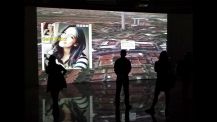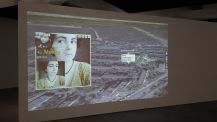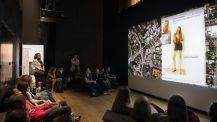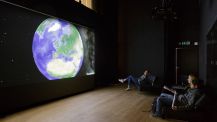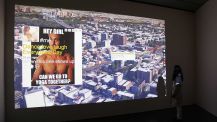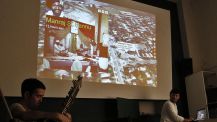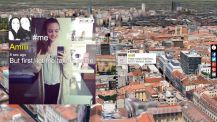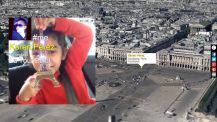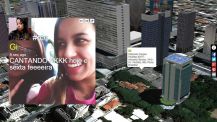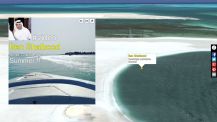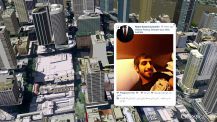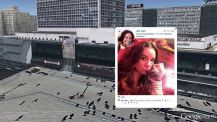Online Project for Interactive Media Art Installations
With Pic-Me you can virtually fly to the locations from where users send posts to Instagram. On Google Earth, these are mapped at the exact location where they were photographed. One might describe these posts – images or short videos accompanied by comments, tags and geolocalisation – as a kind of digital small talk or personal conversation. Different than face to face conversations, these fleeting thoughts are accumulated and archived by governments, corporations, and research institutes and then transformed into everlasting stories as well. We can’t tell yet, what the consequences of archiving these often personal and emotional posts are in the long run. The work by Marc Lee makes us think about the properties of the digital realm and what happens to the data that is generated by people all over the globe.
Text: Sabine Himmelsbach
Pic-Me V2 (Version 2), 2016 – , needs the Google Earth App
Pic-Me V1 (Version 1), 2014 – 2016, used the Google Earth Browser Plug-in
Description
Using the app Instagram, any moment shared as a picture or a short video with the whole world within seconds. Squared and anachronistic due to the filters adopted and usually accompanied by short descriptions and geotags, the posts reflect the lives of their users just as diary entries do.
Marc Lee’s latest online project Pic-Me sets the posts in context to the environment of the user and locates them on Google Earth. In the typical zoom mode that allows us to “fly” towards a specific destination on the globe within seconds, users will be localized by their address. It is also possible to search for specific users and tags: For example http://pic-me.com/berlin selects Instagram posts that are tagged with the word “Berlin”. The user’s trail can also be traced by clicking on his or her profile picture. Many users are unaware of features such as geotagging being activated by default on social media platforms. Much additional personal information is therefore revealed unintentionally.
In the clash of the Internet giants Google and Facebook’s Instagram, Pic-Me questions the personal data tracks left on the Internet, their ambiguous status between anonymity and the accurate visibility and localization of the individual. What happens to these personal and often emotional stories that are collected in huge databases by commercial enterprises, research institutions and governments? What are the consequences of such data archives? What kind of paramount stories do they tell, and what is the individual’s role? Even though it remains to be seen which long-term implications and consequences this collecting and archiving may have, it is worth thinking about it already now.
Text: Doris Gassert
Awards
🏆 Social Media Art Award, Phaenomenale, Wolfsburg, Germany (2015)
Jury: „This artwork impressively stimulates the consequences of data archives and questions the role of the individual in the www“
Jury Members: Marcel Schwierin (Director of Edith-Russ-Haus for Media Art), Andreas Broeckmann (Director of Leuphana Arts Program, Leuphana University Lüneburg), Justin Hoffmann (Director of Kunstverein Wolfsburg/Artistic Director of Phaenomenale), Monika Kiekenap-Wilhelm (Director of Kulturwerk, City of Wolfsburg), Anita Placenti-Grau (Director of Institut für Zeitgeschichte und Stadtpräsentation, City of Wolfsburg), more
🏆 Bogdanka Poznanovic Award for the best video installation, live piece, software, 21st Videomedeja (2017)
Jury Members: Theus Zwakhals aus Hollands, Dalibor Barić aus Kroatien und Vladimir Tupanjac aus Serbien, more
Screenshots
Versions
Pic-Me V1 (Version 1), 2014 – 2016 required the Google Earth browser plug-in, which was available until early 2016
Pic-Me V2 (Version 2), 2016 – was developed for the Google Earth App. In addition to the technical update, the design was also modernised: The look of the posts has been aligned with Instagram, fonts, colours and icons. The approach suggests more strongly a kind of “military” attack into our privacy.
